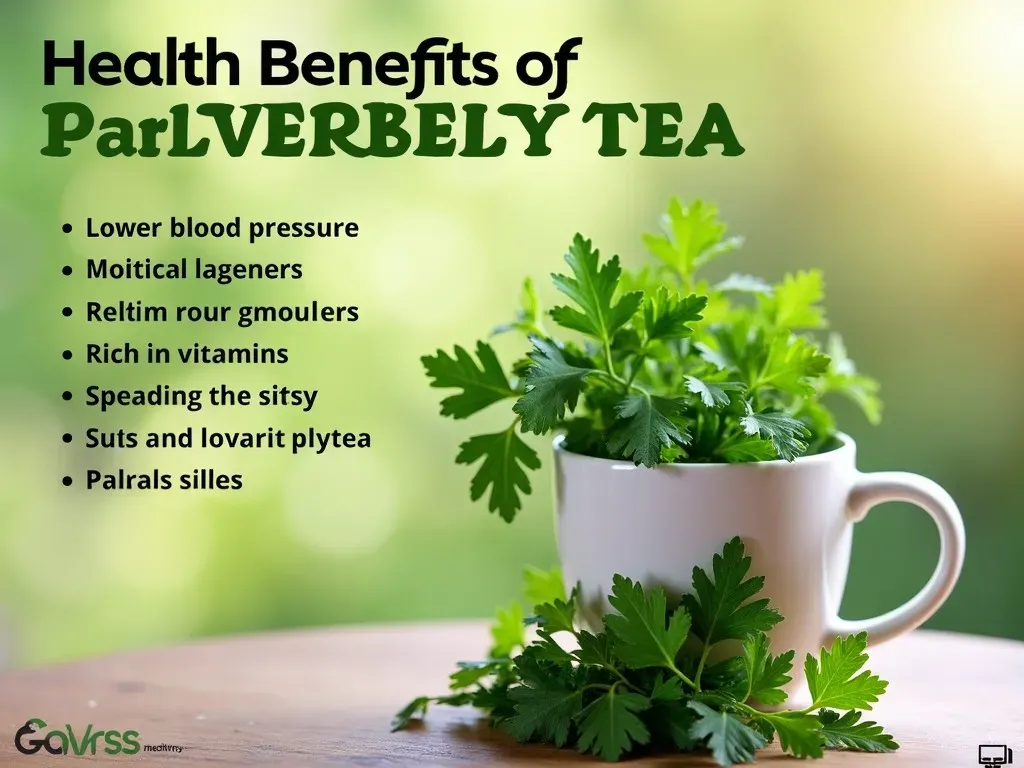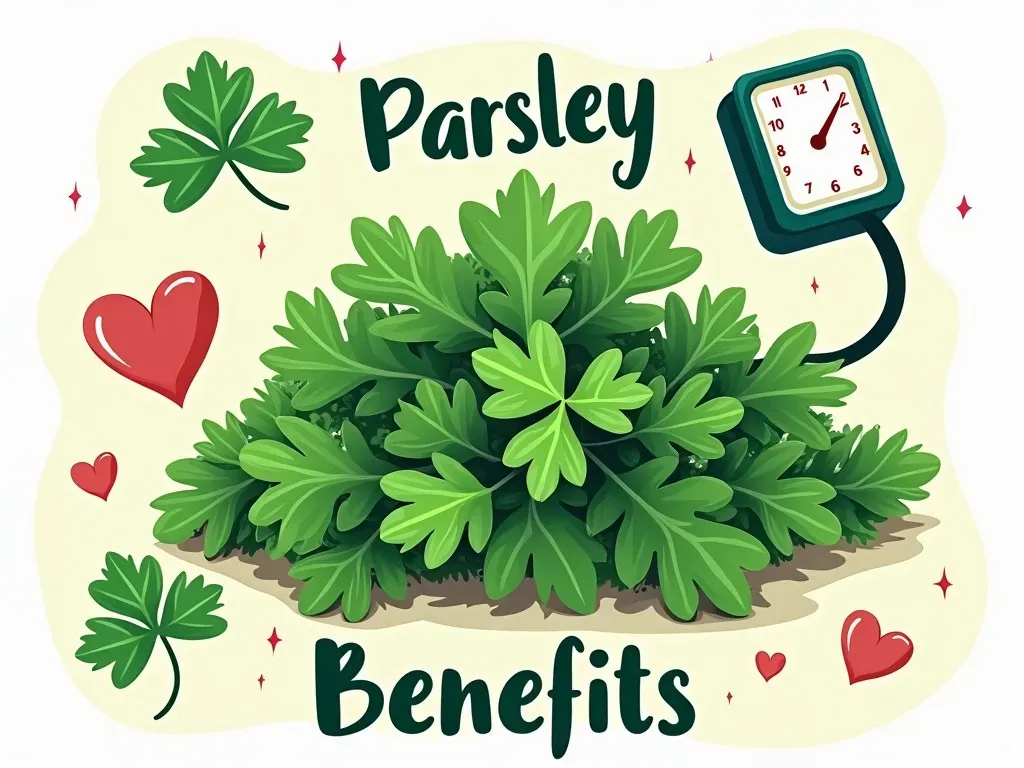Parsley, a widely used culinary herb, has been suggested to have potential benefits in lowering blood pressure. But does parsley truly lower blood pressure? Let’s explore the research, benefits, and ways to incorporate parsley into your diet for optimal health.
The Health Benefits of Parsley and Its Components
Parsley (Petroselinum crispum) is not only a garnish but also a powerhouse of nutrients. Packed with vitamins A, C, and K, the herb also possesses anti-inflammatory properties and acts as a natural diuretic. One of parsley’s notable components is nitrates, shown to help relax blood vessels and improve overall blood circulation.
Key Nutrients in Parsley
| Nutrient | Amount (per 100g) | Benefits |
|---|---|---|
| Vitamin K | 1640 mcg | Important for bone health |
| Vitamin C | 133 mg | Boosts the immune system |
| Vitamin A | 421 mcg | Supports vision and skin health |
| Folate | 152 mcg | Aids in cell division and DNA synthesis |
| Iron | 6.2 mg | Essential for the formation of hemoglobin |
Parsley is also rich in antioxidants, which help to combat oxidative stress, potentially lowering the risk of heart disease and hypertension.
Parsley and Blood Pressure: What the Research Says
Studies suggest that the nitrate content in parsley can help lower blood pressure by improving endothelial function and enhancing vasodilation.
Clinical Studies
-
Nitrates and Vascular Health
- Studies have indicated that dietary nitrates can facilitate the production of nitric oxide, a molecule that promotes blood vessel relaxation.
- A study published in the Journal of Agricultural and Food Chemistry highlighted how compounds in parsley led to improved vascular function.
-
Parsley as a Natural Diuretic
- Parsley is known for its diuretic properties, meaning it can help promote urine production. This can lead to decreased blood volume and lower blood pressure levels.

Other Relevant Research
Research from Healthline emphasizes the potential benefits of various herbs, including parsley, on blood pressure management. It suggests that the carotenoids found in parsley can also contribute to lowering blood pressure levels.
How to Use Parsley
Incorporating parsley into your diet is simple and can be done in various ways:
-
Fresh Parsley:
- Add chopped parsley to salads, rice dishes, or pasta.
- Use as a garnish for soups and stews.
-
Parsley Tea:
- Steep fresh parsley leaves in boiling water for several minutes to create a herbal tea that may enhance your body’s ability to manage blood pressure.
-
Smoothies:
- Blend parsley with fruits and vegetables to create a nutrient-rich smoothie.
-
Seasoning:
- Use parsley as a seasoning in meats, fish, and bread recipes.
Table: Recipes to Include Parsley in Your Diet
| Recipe Type | Ingredients | Preparation Steps |
|---|---|---|
| Parsley Pesto | Fresh parsley, olive oil, garlic, nuts | Blend all ingredients until smooth |
| Parsley Salad | Chopped parsley, tomatoes, cucumber, lemon juice | Toss ingredients together and serve chilled |
| Parsley Soup | Parsley, vegetable broth, garlic, onion | Sauté onion and garlic, add broth and parsley |
| Green Smoothie | Parsley, banana, spinach, almond milk | Blend all ingredients until smooth |
FAQs
Q1: How much parsley should I consume to benefit from its blood pressure-lowering properties?
A: While there is no specific recommended amount, incorporating a handful of parsley into your daily diet through salads, soups, or smoothies can be beneficial.
Q2: Are there any side effects of consuming parsley?
A: In moderation, parsley is generally safe for most people. However, excessive consumption can lead to side effects such as gastrointestinal issues or allergic reactions, especially for individuals with certain medical conditions. Always consult a healthcare professional if in doubt.
Q3: Can parsley interact with medications?
A: Yes, parsley may interact with blood-thinning medications due to its vitamin K content. Consult your healthcare provider before adding significant amounts of parsley to your diet, especially if you are on medication.
Q4: Is parsley effective for everyone in lowering blood pressure?
A: While parsley may help some individuals due to its nutrient profile, results can vary based on overall health, lifestyle, and dietary patterns. It should not replace medications or professional treatments for hypertension.

Q5: Besides parsley, what other herbs are helpful in managing blood pressure?
A: Other herbs known for their blood-pressure-lowering effects include garlic, cinnamon, and basil. Incorporating a variety of these herbs into your diet can offer additional health benefits.
Conclusion
In summary, parsley does appear to have components that may contribute to lowering blood pressure due to its nitrate content, antioxidant properties, and diuretic effects. Incorporating parsley into your cooking not only enhances the flavor but can also serve as a delicious way to support overall cardiovascular health. Explore the various ways to use this humble herb, and reap the health benefits it may offer!
For a detailed study on how parsley and other herbs can influence blood pressure, refer to Healthline – 10 Herbs That May Help Lower High Blood Pressure.

This article emphasizes unique insights into how parsley can potentially lower blood pressure and includes practical dietary suggestions for readers interested in improving their health through nutrition.
